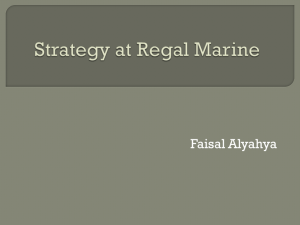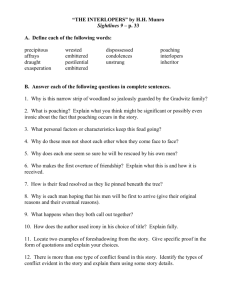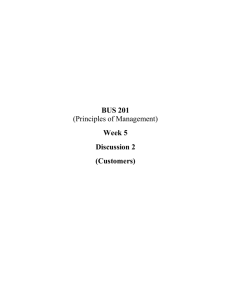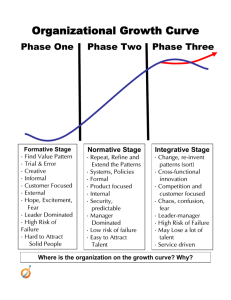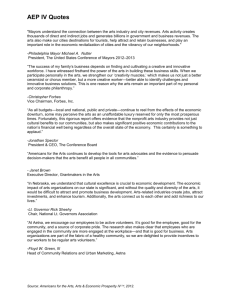Peter Dietsch - Tax Coop | CONFERENCE
advertisement
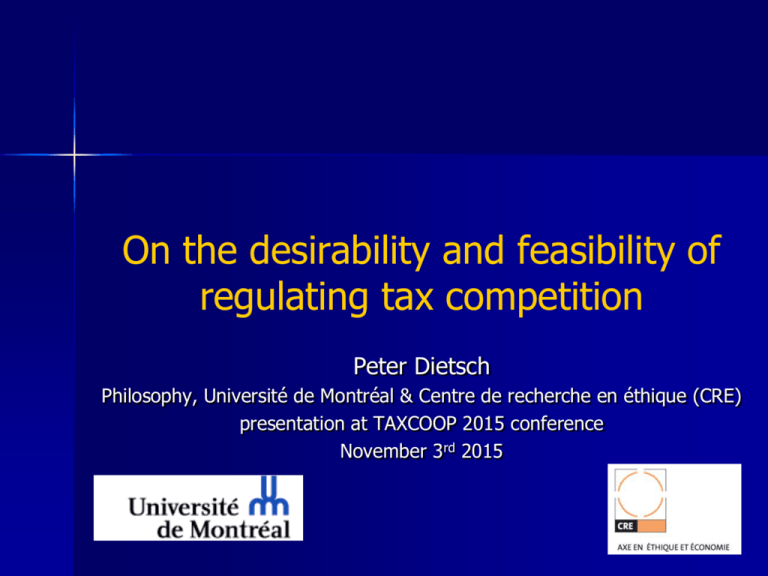
On the desirability and feasibility of regulating tax competition Peter Dietsch Philosophy, Université de Montréal & Centre de recherche en éthique (CRE) presentation at TAXCOOP 2015 conference November 3rd 2015 The ethics of tax competition 3 questions: 1) What values for international tax governance? => fiscal autonomy (= minimalist approach) 2) How does tax competition affect fiscal autonomy? => undermining effect 3) What should we do about tax competition? Definition & typology Tax competition: the interactive tax setting by independent governments in a noncooperative, strategic way 3 types of tax competition: 1)to attract portfolio capital => tax evasion (illegal) 2)to attract paper profits of multinationals => tax avoidance (mostly respects the letter of the law, but violates its spirit) 3)to attract foreign direct investment => considered within the rights of states Definition & typology Tax competition: the interactive tax setting by independent governments in a noncooperative, strategic way 3 types of tax competition: 1)to attract portfolio capital => tax evasion (illegal) 2)to POACHING attract paper profits of multinationals => tax avoidance (mostly respects the letter of the law, but violates its spirit) 3)to attract foreign direct investment => considered within the rights of states Definition & typology Tax competition: the interactive tax setting by independent governments in a noncooperative, strategic way 3 types of tax competition: 1)to attract portfolio capital => tax evasion (illegal) POACHING 2)to attract paper profits of multinationals => tax avoidance (mostly respects the letter of the law, but violates its spirit) 3)to attract foreign direct investment => considered within the rights of states LURING The challenge 1) 1) Are current measures against poaching effective? - clear progress on tax evasion - prospects for containing profit shifting not as good If they were effective, most OECD countries would not adopt them - Why not? - substitutive relationship between poaching and luring Another look at luring Parallel between tax policy and trade policy: A low tax rate is just the flip side of a subsidy The WTO rules out subsidies to promote a level playing field in international trade We need constraints on luring, too This does not imply harmonisation of tax rates, but it does require harmonisation of tax rules one proposal: the fiscal policy constraint (Dietsch & Rixen, “Tax competition and global background justice”, Journal of Political Philosophy 22/2 (2014), 150-77) Conclusion For reasons of political feasibility, as long as luring is not part of the agenda of international tax reform, we will not see an effective solution to the problem of poaching. For more details: Peter Dietsch Catching Capital – The Ethics of Tax Competition Oxford University Press, 2015
